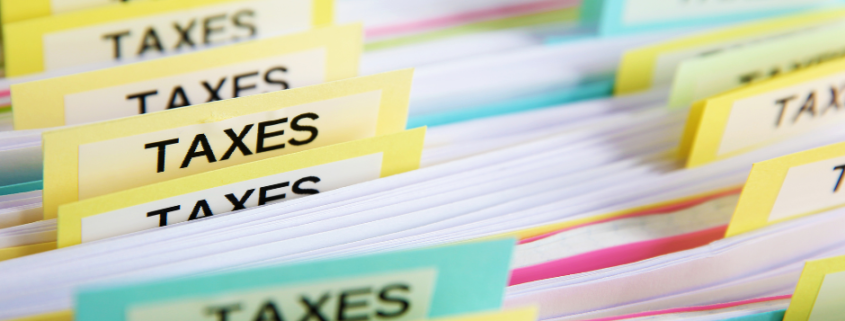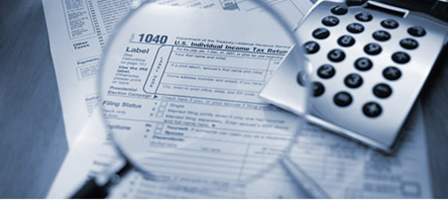When Can You Dump Old Tax Records? Fiducial Has the Answer
- Learn the general statute of limitations regarding tax records.
- Find out if some states have a longer statute of limitations and why.
- Learn how fraud, failure to file, and other issues can extend the statute.
- Find out if you should keep the actual return.
Taxpayers often question how long they should keep old income (i stress this because payroll tax records have different retention policies) tax records. How much time does the IRS have to audit a return after you file?
It all depends on the circumstances! In many cases, the federal statute of limitations for the assessment of additional income tax can help you determine how long to keep records. With certain exceptions, the statute for assessing additional tax is 3 years from the return due date or the date the return was filed, whichever is later.
However, the statute of limitations for many states is one year longer than the federal limitation. The reason for this is that the IRS provides state taxing authorities with federal audit results. The extra time on the state statute gives states adequate time to assess tax based on any federal tax adjustments that also apply to the state return.

Exceptions to the Federal 3-Year Rule
In addition to lengthened state statutes clouding the recordkeeping issue, the federal 3-year rule has several exceptions:
- The assessment period is extended to 6 years instead of 3 years if a taxpayer omits from gross income an amount that is more than 25 percent of the income reported on a tax return.
- The IRS can assess additional tax with no time limit if a taxpayer: (a) doesn’t file a return; (b) files a false or fraudulent return to evade tax; or (c) deliberately tries to evade tax in any other manner.
- The IRS gets an unlimited time to assess additional tax when a taxpayer files an unsigned return because an unsigned return is deemed to be "unfiled".
If no exception applies to you, for federal purposes, you can probably discard most of your tax records that are more than 3 years old. You should add a year or so to that if you live in a state with a longer statute.
Examples: Susan filed her 2020 tax return before the due date of April 15, 2021. She will be able to safely dispose of most of her records after April 15, 2024. On the other hand, Don filed his 2020 return on June 1, 2020. He needs to keep his records at least until June 1, 2024. In both cases, the taxpayers may opt to keep their records a year or two longer if their states have a statute of limitations longer than 3 years.
Which Tax Records Should You Never Throw Away?
Even if you discard backup records, never throw away your file copy of any tax return (including W-2s). Often the return itself provides data useful in future tax return calculations or to prove amounts related to property. You should keep certain records for longer than 3 years. These records include:
- Stock acquisition data. If you own stock in a corporation, keep the purchase records for at least 4 years after the year you sell the stock. This data will be needed to prove the amount of profit (or loss) you had on the sale. Although brokers must now – in most cases – keep purchase records and report the information to the IRS when the stock is sold, it is still a good idea for you to maintain your own records, as you the taxpayer are ultimately responsible for proving the cost to the IRS if your return is audited.
- Stock and mutual fund statements where you reinvest dividends. Many taxpayers use the dividends they receive from a stock or mutual fund to buy more shares of the same stock or fund. The reinvested amounts add to basis in the property and reduce gain when it is finally sold. Keep statements at least 4 years after the final sale.
- Tangible property purchase and improvement records. Keep records of home, investment, rental property, or business property acquisitions AND related capital improvements for at least 4 years after you sell the underlying property. I would also add that you should keep records establishing a net operating loss for at least three years after any tax benefit from a carryback or carryforward of that loss was claimed as IRS can challenge the NOL in any year a tax benefit is claimed.
Paper vs. Electronic Files
As we become more and more a paperless society, you may wonder if you must keep the paper version of the records mentioned in this article. No, you don’t – you can scan the paper documents and maintain them on your computer or in the cloud. But if you do convert the records to electronic files, be sure to maintain a backup that can be retrieved if you have a computer crash or cyber attack that takes over your computer.
Have questions about which records to retain and what you can dispose of now? Call Fiducial at 1-866-FIDUCIAL or make an appointment at one of our office locations to discuss your situation.
Ready to book an appointment now? Click here. Know someone who might need our services? We love referrals!
For more small business COVID-19 resources, visit Fiducial’s Coronavirus Update Center to find information on SBA loans, tax updates, the Paycheck Protection Program, and paid sick and family leave.









